![]()
![]()
![]()
Use LEFT and RIGHT arrow keys to navigate between flashcards;
Use UP and DOWN arrow keys to flip the card;
H to show hint;
A reads text to speech;
18 Cards in this Set
- Front
- Back
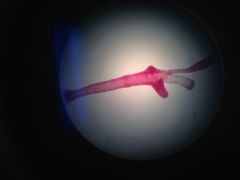
|
HYDRA BUDDING CLASS: HYDROZOA -budding a form of asexual reproduction - smaller HYDRA grows on side of parent - Until smaller HYDRA breaks free from parents their gastrovascular cavities are connected |
|
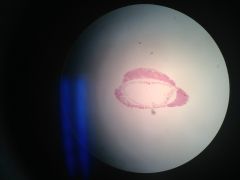
|
HYDRA GONADS CLASS: HYDROZOA - specimen is male -gonad growth in epidermis -HYDRA has NO Medusa stage |
|
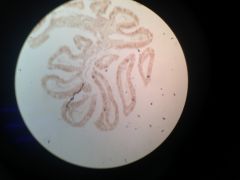
|
PHYSALIA TENTACLES CLASS: HYDROZOA - Long tentacles are feeding polyps or dactylozooids and gastrozooids -nematocyctes on edges |
|
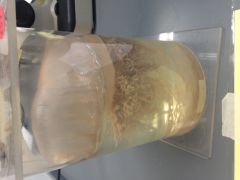
|
PHYSALIA CLASS: HYDROZOA - common name: Man of War -Air sac: Pneumatophore -Reproductive individuals: Gonophores -Feeding individuals w/ stinging tentacles: Gastrozooids |
|
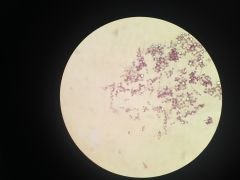
|
NEMATOCYTES - Stinging cell organelles found in ALL Cnidarians are coiled inside - self defense and capturing prey - inject poison into prey - touch and chemical stimulus to be activated |
|
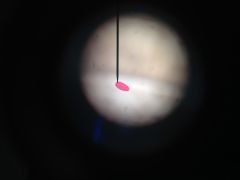
|
PLANULA LARVA CLASS: AURELIA - comes after zygote stage - small and ciliated will swim and settle and attach to substrate |
|
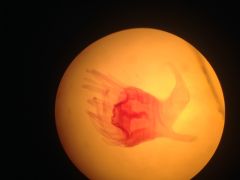
|
SCYPHISTOMA CLASS: AURELIA - First part of Polyp stage - Function : feed and store nutrients - Once enough nutrients it will begin budding |
|
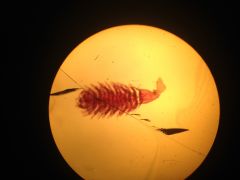
|
STROBILA CLASS: AURELIA - This polyp is undergoing STROBILATION which is asexually budding |
|
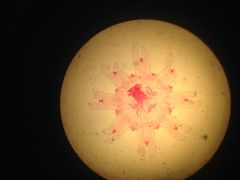
|
EPHYRA CLASS: AURELIA - Immature Medusa stage - when mature will be able to produce eggs/sperm |
|
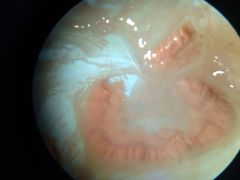
|
ADULT MEDUSA CLASS: AURELIA - Mature Medusa/ Jellyfish stage -Four horseshoe shaped organs :GONADS - Radially symmetrical contains 4 quadrants each with a gonad : TETRAMEROUS |
|
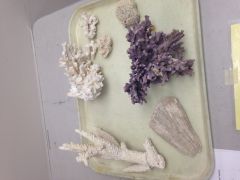
|
HARD STONY CORALS CLASS: ANTHOZOA - Colonies of polyps found in shallow marine waters - Tiny polyps secrete calcuim carbonate which forms hard skeleton |
|
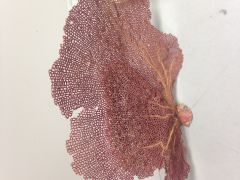
|
GORGONIA CLASS ANTHOZOA - Common name: Sea Fan - Marine polyp colony - soft coral |
|
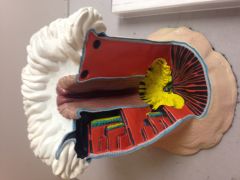
|
METRIDIUM CLASS: ANTHOZOA - Common name: Sea anemone - Live in shallow water - No Medusa in these polyps |
|
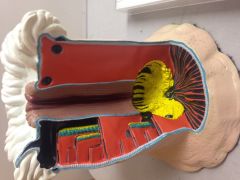
|
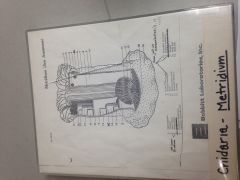
|
|
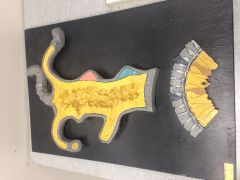
|
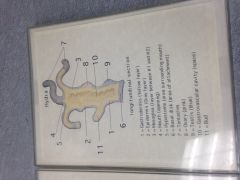
|
|
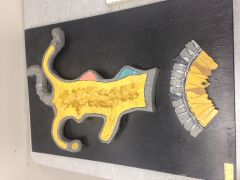
|
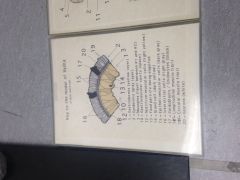
|
|
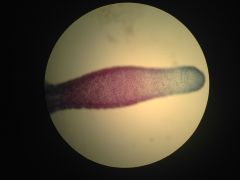
|
HYDRA |
|
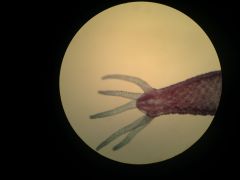
|
HYDRA |

